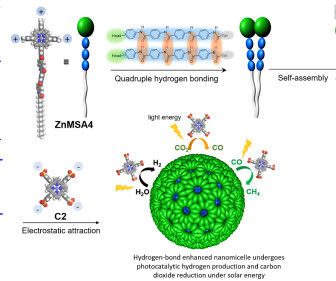New photocatalytic system converts carbon dioxide to valuable fuel more efficiently than natural photosynthesis
Green Car Congress
AUGUST 13, 2023
A joint research team from City University of Hong Kong (CityU) and collaborators have developed a stable artificial photocatalytic system that is more efficient than natural photosynthesis. Photo credit: (left) Professor Ye Ruquan’s research group / City University of Hong Kong and (right) Biophysical Journal, 99:67-75, 2010.
































Let's personalize your content